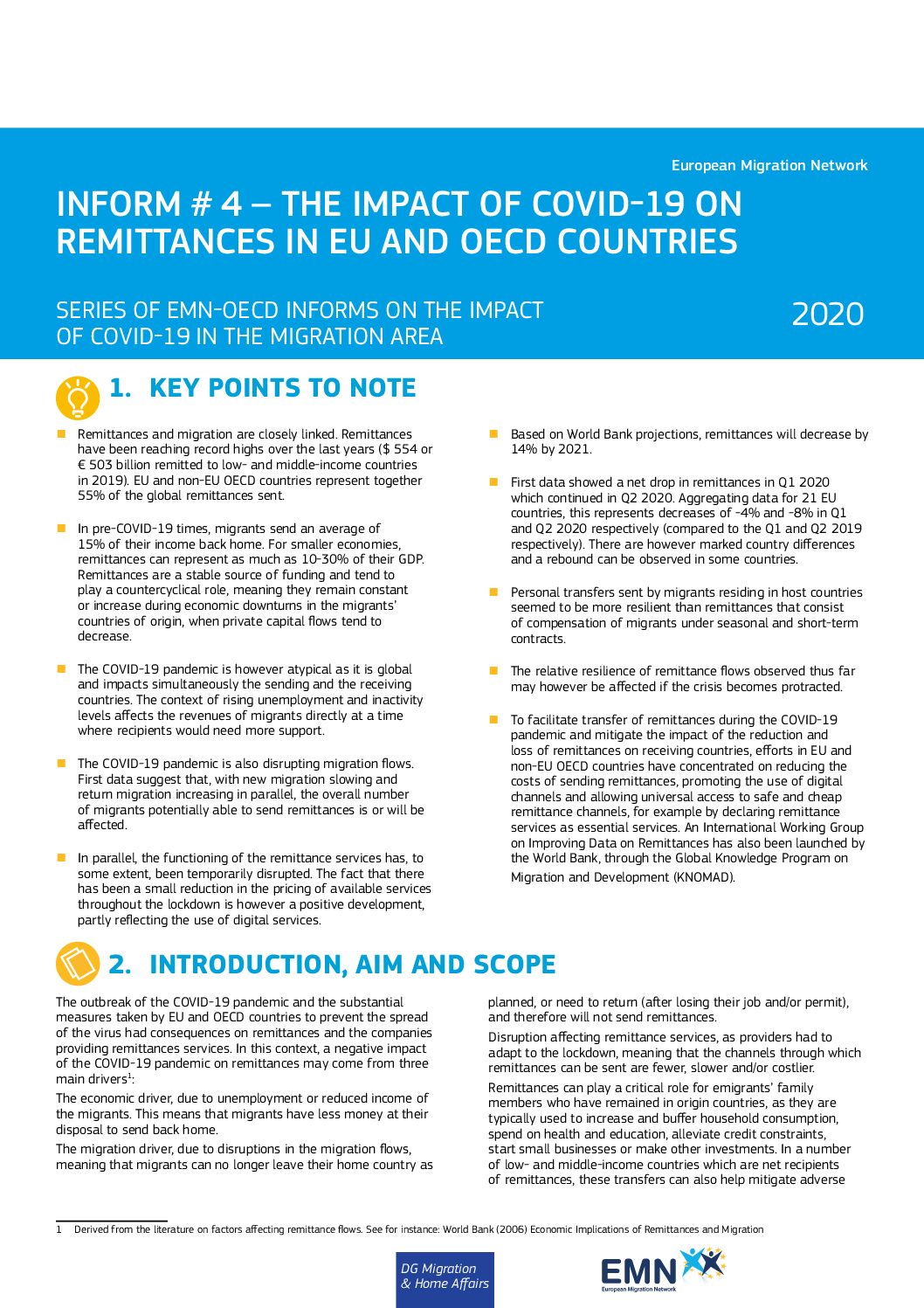The outbreak of the COVID-19 pandemic and the substantial measures taken by EU and OECD countries to prevent the spread of the virus had consequences on remittances and the companies providing remittances services. In this context, a negative impact of the COVID-19 pandemic on remittances may come from three main drivers.
The economic driver, due to unemployment or reduced income of the migrants. This means that migrants have less money at their disposal to send back home. The migration driver, due to disruptions in the migration flows, meaning that migrants can no longer leave their home country as planned, or need to return (after losing their job and/or permit), and therefore will not send remittances. Disruption affecting remittance services, as providers had to adapt to the lockdown, meaning that the channels through which remittances can be sent are fewer, slower and/or costlier.
Remittances can play a critical role for emigrants’ family members who have remained in origin countries, as they are typically used to increase and buffer household consumption, spend on health and education, alleviate credit constraints, start small businesses or make other investments. In a number of low- and middle-income countries which are net recipients
of remittances, these transfers can also help mitigate adverse macroeconomic shocks because they tend to be countercyclical or at least remain stable. A decrease in remittances can therefore be particularly damaging when the recipient country’s economy undergoes a negative economic shock.
This joint EMN – OECD Inform reports on the impact of COVID-19 on international remittances in EU and OECD countries, since February 2020. After a brief summary of the background and context (section 3), the Inform will cover in detail each of three main drivers possibly impacting remittance flows: a) the economic driver, b) the migration driver, and c) the disruptions affecting remittance service providers (section 4). It will explore the impact of the COVID-19 pandemic on remittances flows thus far and the available projections (section 5). It will also outline policy recommendations made at the international level to maintain the flow of remittances as well as examples of measures which have been taken in the EU and non-EU OECD countries
This Inform is part of a series of Informs addressing topics that explore the impact of COVID-19 in the field of migration. Other topics include;


